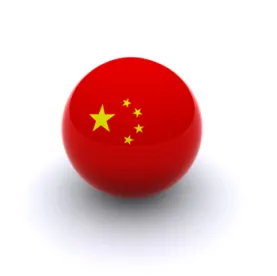In decision no. (2020)最高法知民终954号 dated November 25, 2021, China’s Supreme People’s Court ruled that if the co-owners of a patent or patent application right do not make an agreement on the exercise of the right and one of the co-owners independently practices the patent, the other co-owner cannot claim the distribution of the proceeds from the separate practicing of the patent on the grounds of co-ownership of the patent right.

The appellant, the First Affiliated Hospital of Wenzhou Medical University 温州医科大学附属第一医院 (hereinafter referred to as Wenzhou Hospital) and the appellee Shenzhen Huilistong Information Technology Co., Ltd. 深圳市汇利斯通信息技术有限公司 (hereinafter referred to as Huilistong Company) were involved in a patent infringement litigation for CN Patent No. ZL 201210235924.0 entitled “a self-service terminal used in the lobby of a hospital.”
Wenzhou Hospital asserted that it co-owns the involved patent with Huilistong. Without its permission, Huilistong Company violated the rights of Wenzhou Hospital by practicing the patent involved in the case, and requested an order for Huilistong Company to stop the infringement and destroy inventory of infringing products and compensate Wenzhou Hospital for economic losses of 2.5098 million RMB and reasonable expenses for rights protection of 116,400 RMB.
The Shenzhen Intermediate People’s Court of Guangdong Province held that Huilistong Company could independently practice the patent involved in the case in accordance with the law, which does not constitute an infringement of the patent right of Wenzhou Hospital.
Wenzhou Hospital appealed to the Supreme People’s Court. The Supreme People’s Court made a determination on the issue of “allocation of royalties,” and on September 24, 2020, it rejected the appeal and upheld the original judgment.
The Supreme People’s Court explained that Article 15 of the Patent Law stipulates that if the co-owners of the patent right have an agreement on the exercise of the right, such agreement shall prevail. If there is no agreement, the co-owners may practice the patent alone or permit others to implement the patent by way of ordinary licensing; if the patent is permitted to be practiced by others, the royalties collected shall be distributed among the co-owners.
Except for the circumstances specified in the preceding paragraph, the exercise of joint patent application rights or patent rights shall obtain the consent of all co-owners.
Therefore, without the consent of the co-owner of the patent, the co-owner of a patent may directly obtain economic benefits through the co-owned patent in two ways: first, to separately practice the co-owned patent, and second, to license others to exploit the patent in the way of ordinary license, and only in the latter circumstance may there be a requirement for distributing the profits to the co-owners, but under the circumstance of independent exploitation, there is no such requirement.
In this case, Wenzhou Hospital claimed that some of the self-service registration integrated machines involved in this case were marked with such words as the joint research and development by Huilistong Company and the hospital involved in this case. However, this does not prove that Huilistong Company licensed the hospital involved in this case to use the patent involved, and there was no evidence in this case that the hospital involved in this case paid any patent licensing fee to Huilistong Company.
Therefore, the claim of Wenzhou Hospital for sharing the economic proceeds obtained by Huilistong Company from the exploitation of the patent at issue was not valid.
Wenzhou Hospital separately claimed that, according to the provisions of the civil law on the sharing of proceeds by the co-owners with respect to the co-owned property, Wenzhou Hospital also had the right to share the economic proceeds obtained by Huillistong Company from the implementation of the patent in question.
In response, the Supreme People’s Court held that, although Article 78 (2) of the General Principles of the Civil Law of the People’s Republic of China provides that “a co-owner enjoys the rights and assumes the obligations over the co-owned property,” this provision is a general provision on the co-owned property, and the aforesaid provision of the Patent Law falls under the special provisions on the distribution mechanism of the rights and interests of all co-owners under the circumstance of co-ownership of patents, and the special provisions of the Patent Law shall prevail.
Therefore, the Supreme People’s Court ruled for Huilistong Company.
The full text of the decision is available here (Chinese only).



 />i
/>i

